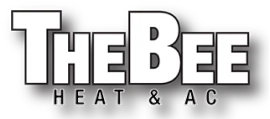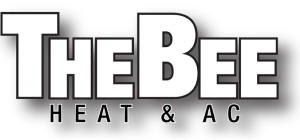As the weather keeps getting colder and indoor heating becomes more of a need, now is a good time to check in on your HVAC system to make sure it’s working properly for winter. If your heating and cooling system isn’t working properly, you could experience higher energy costs and a less than comfortable living environment. Sometimes it makes more sense to get a brand new HVAC system than to keep repairing an old one. This article will explain when it’s time to replace your HVAC system, why regular maintenance is critical, and what to do with your old system after it’s no longer needed. In addition, we’ll detail the cost savings that come with updating your HVAC system and present a checklist for deciding whether to repair or replace your current system.
On This Article
hide
1)
1. Your HVAC System Is Older Than Ten Years
2)
2. The price of repairs exceed that of a whole new system.
3)
3. Ever-increasing energy costs is a constant problem.
4)
4. It’s a tad too warm or a tad too cool in your home.
5)
5. There seems to be more dust than usual in your home.
6)
6. Odd Scents and Noises
7)
7. The Air Quality Inside Your Home Is Low
8)
Conclusion
1. Your HVAC System Is Older Than Ten Years
If your HVAC system is older than 10 years, there’s a very clear indication that it’s time for replacement. Any HVAC system that is getting close to or has already passed the typical lifespan of 15 years should be considered for replacement. Air conditioning and heating units lose efficiency and become more prone to malfunctions as they get older. You may increase your home’s comfort and decrease your energy costs by upgrading to a newer, more efficient system. Energy prices can rise further if older systems are not updated to meet today’s standards for efficiency. Despite the fact that your system may seem to be operating normally, it may not be running at peak efficiency, leading to higher energy bills.
2. The price of repairs exceed that of a whole new system.
If you’re spending too much money on maintenance and repairs, it may be time to get a new heating and cooling system. When the price of repairs exceeds fifty percent of the price of a new system, it is usually more cost-effective to replace it. It’s important to include in the total cost of ownership when deciding whether or not to fix an outdated equipment. Additionally, repairs on older systems may be more frequent and expensive because of their increased vulnerability to failure. Not only will a brand-new HVAC system be more energy-efficient, but it will also come with a guarantee that can provide you some peace of mind and shield you from any unforeseen expenses. Having a competent HVAC expert assess the situation is crucial if you’re wondering if it’s time to replace your system due to mounting repair costs.
3. Ever-increasing energy costs is a constant problem.
If you see a steady increase in your energy expenses, it may be time to upgrade your HVAC system. HVAC systems lose efficiency and increase energy consumption as they get older. In some cases, this can lead to more expensive energy bills. Unmaintained heating, ventilation, and air conditioning systems also result in higher energy bills. Comfort and savings on utility bills are two great reasons to consider an upgrade to a newer, more efficient system. If your energy expenditures are consistently higher than they were during the same time last year, it may be time to replace your heating and air conditioning equipment. If you suspect your HVAC system is to blame for your rising utility costs and are considering a replacement, it is essential that you first talk with a qualified HVAC specialist.
4. It’s a tad too warm or a tad too cool in your home.
Another indicator that it’s time to replace your HVAC system is if your home is consistently too hot or too cold. A well-functioning HVAC system should keep your home at a comfortable temperature all the time. Your heating, ventilation, and air conditioning unit may need to be replaced if it has trouble keeping up with the increasing temperature demands. Temperature inconsistencies can also be caused by a poorly maintained heating, ventilation, and air conditioning system. When you upgrade to a newer, more efficient system, you not only increase your home’s comfort but also decrease your monthly energy costs. In order to figure out if your HVAC system is malfunctioning and needs to be replaced because of the erratic temperature it produces, you need talk to a professional HVAC specialist.
5. There seems to be more dust than usual in your home.
It may be time to update your HVAC system if you have noticed an increase in dust levels in your home. Dust and other airborne particles can be eliminated with a properly operating HVAC system. Inadequate air circulation from your HVAC system might cause dust to build up within your home. Poor filtration capacities of older systems can also contribute to subpar indoor air quality. Your home’s comfort and the air quality inside it can both benefit from an upgrade to a newer, more efficient system with higher filtering capabilities. If you notice a rise in dust levels in your home, it may be time to replace your HVAC system; a qualified technician should be consulted for this purpose.
6. Odd Scents and Noises
If your HVAC system is making strange noises or releasing odors, it may be time to get a replacement. It’s possible that your HVAC system is broken or in need of repair if you notice any of these odors or sounds. Having a burning odor could be an indication of an electrical problem, while banging or squeaking noises could point to issues with the HVAC system’s mechanical parts. These noises and odors aren’t just an annoyance; they might really be hazardous to your health. The comfort and health of those who live there can benefit from an upgrade to a newer, more efficient system. If you smell something strange or hear strange noises coming from your HVAC system, it may be time to replace the unit.
7. The Air Quality Inside Your Home Is Low
When the interior air quality is bad, it’s time to think about getting a new heating and cooling system. When your home’s HVAC system isn’t doing its job, poor indoor air quality might result. Asthma, allergies, and other respiratory difficulties are just some of the illnesses made worse by subpar indoor air quality. Comfort and indoor air quality can both benefit from an upgrade to a newer, more efficient system with higher filtering capabilities. If you suspect that your HVAC system is to blame for the subpar air quality within your home, you should schedule an appointment with a professional specialist.
Conclusion
In conclusion, while deciding whether to replace or repair your HVAC system, it’s crucial to keep an eye out for specific symptoms that suggest it’s time for a replacement. A system’s age (if it’s older than ten years), repair expenses (if they’re more than half the price of a new system), rising energy bills, uneven temperatures in different rooms, an increase in household dust, strange noises, and diminished air quality are all indicators of a need for replacement. It’s also vital to examine the necessity of appropriate maintenance and how neglecting maintenance can lead to more costly repairs or the need to replace your system sooner. You may save money on energy costs and enhance the quality of the air inside your house with the installation of a new heating, ventilation, and air conditioning system. The importance of talking with a professional HVAC expert cannot be understated, they can help you evaluate if it’s time to replace or repair your system and lead you through the process.

